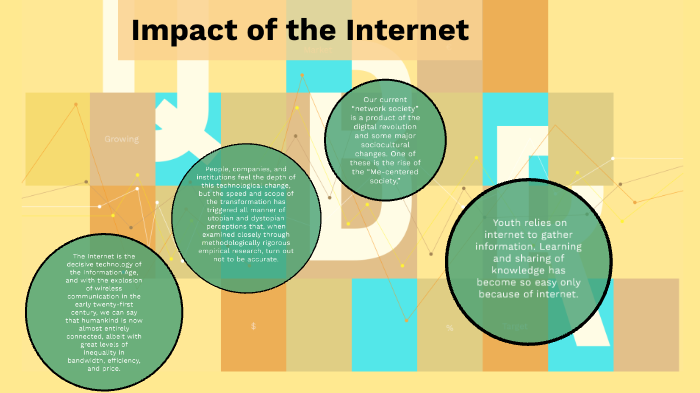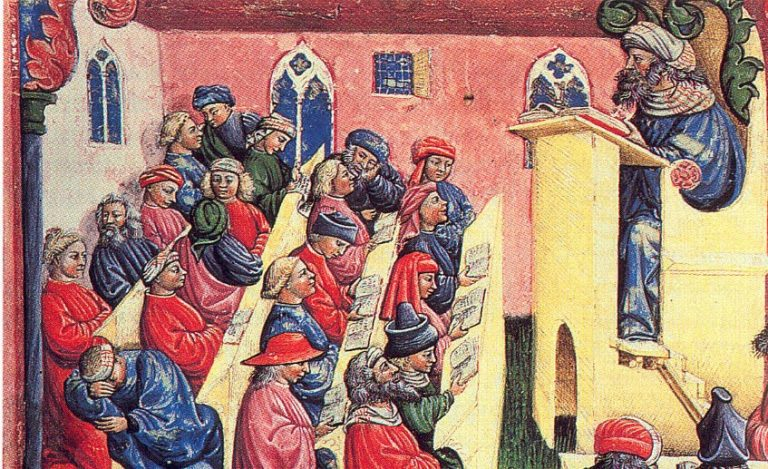The impact of the internet on fiction has transformed the literary landscape in profound ways. In an era often dubbed ‘fiction in the digital age’, writers face new challenges and opportunities that were unimaginable just a few decades ago. The seamless accessibility of online resources has revolutionized research processes, allowing authors to delve into historical contexts and cultural nuances with ease. However, this has also led to complex changes in how stories are perceived and consumed, with the role of social media in reading further complicating traditional literary dynamics. As technology continues to affect storytelling, it’s imperative to explore the multifaceted challenges that modern fiction encounters today.
The digital revolution has ushered in a new era for storytelling, dramatically reshaping how narratives are crafted and experienced. The proliferation of online platforms has not only altered how readers engage with texts but also how writers develop their work, often informed by trending dialogues on social mediums. This rapid exchange of ideas and instant feedback can either foster creativity or dilute the essence of literary expression. As we analyze the evolution of narrative art in this technological age, it’s crucial to understand the implications for authors striving for emotional depth and authenticity amid a landscape filled with distractions. This ongoing dialogue reflects the complex relationship between literature and the digital world, helping us navigate the shifting paradigms of contemporary fiction.
The Internet Changing Literature: A Paradigm Shift
The influence of the internet on literature has been profoundly transformative, redefining the reading experience and reshaping the narrative structure of fiction. With the advent of digital platforms, readers no longer simply consume books; they engage in discussions, leave reviews, and share recommendations publicly. This shift has democratized literary criticism, allowing voices from diverse backgrounds to shape opinions about various works of fiction. Social media platforms provide a space for a multitude of perspectives, but they also create the challenge of navigating through a vast sea of opinions, where the cacophony can drown out quieter, more nuanced voices.
Moreover, the accessibility of online content has fundamentally changed how authors approach storytelling. Writers today wrestle with the demands of crafting narratives that capture attention in a landscape inundated with distractions. Traditional plot devices, such as the mystery of characters losing one another, are now rare, as the internet connects individuals instantaneously. This reliance on constant connectivity may dilute the emotional depth traditionally seen in fiction, as readers find themselves bombarded by real-time updates and may struggle to invest in the slow build-up of narrative tension. Despite these pressures, the internet also offers new opportunities for authors to reach wider audiences, making it both a boon and a challenge in the realm of modern literature.
The Role of Social Media in Reading and Writing
Social media has fundamentally altered how readers and writers interact, turning the traditional author-reader dynamic into a more complex relationship. Writers now often find themselves marketing their work on platforms where audience engagement is crucial for visibility. This necessitates a constant presence online, where sharing snippets of work, engaging with readers, and responding to feedback becomes as important as the writing itself. Consequently, while this creates a sense of community among literature enthusiasts, it can also lead to a compartmentalization of creativity, where the pressure to conform to popular trends may stifle genuine expression.
For readers, social media offers immediate access to a plethora of literary opinions, often shaping their reading choices. Bookstagram and BookTube influencers can sway public opinion, creating best-sellers overnight, but this can come with the detrimental risk of reducing literature to mere trends and viral sensations. The once sacred practice of reading has become interwoven with social validation, where ‘likes’ and shares can overshadow the intrinsic value of a story. As literature evolves in the digital age, it raises vital questions about the integrity of narrative and the role of reader engagement in shaping literary culture.
How Technology Affects Storytelling: A Double-Edged Sword
In the realm of storytelling, technology has served as both a catalyst for innovation and a source of contention among writers. The digital landscape has birthed new forms of narrative, such as interactive storytelling and immersive experiences, which allow audiences to engage with fiction in previously unimagined ways. This encourages authors to experiment with their craft, pushing boundaries to create more dynamic narratives that resonate with tech-savvy readers. For instance, some writers have integrated multimedia elements into their work, blending text with visuals and audio to enhance the storytelling experience.
However, reliance on technology also brings challenges. The desire to innovate can lead to superficial storytelling, where the emphasis on shiny formats overshadows character development and thematic depth. Writers may find it increasingly difficult to navigate the balance between compelling storytelling and engaging with technological trends. Additionally, there is the risk of alienating readers who prefer traditional forms of narrative. As technology continues to reshape the landscape of fiction, it remains crucial for authors to remember the foundational elements of storytelling that resonate with readers on a deeper, emotional level.
Modern Fiction’s Challenges: Staying Relevant in a Digital World
As the literary world grapples with the realities of the digital age, writers face the challenge of staying relevant amidst changing reader habits. The rise of the internet has led to shorter attention spans, with many readers opting for bite-sized content over longer, more intricate narratives. This shift compels authors to rethink their techniques, often prioritizing hooks that capture attention quickly and maintain engagement rather than delving into the rich subtleties that characterize long-form fiction.
Alongside this, there is the undeniable competition with the vast array of media available today—streaming services, video games, and social media dominate leisure time, making it imperative for authors to find new ways to appeal to readers. Modern fiction must navigate these waters carefully, endeavoring to deliver stories that not only entertain but engage readers intellectually and emotionally. As writers tackle these challenges, the question remains: how can fiction reclaim its space in a world increasingly defined by instantaneous gratification?
The Search for Emotional Truth in a Digital Landscape
In a world saturated with information and fleeting online interactions, the pursuit of emotional truth remains a timeless pursuit within fiction. Writers strive to convey experiences that resonate on a deeply personal level, capturing the essence of human emotions in ways that digital communication often fails to achieve. Yet, as social media dominates our daily interactions, the ability to connect authentically becomes more challenging. The art of storytelling, rooted in shared experiences, competes with a barrage of curated images and carefully crafted posts that can obscure true feelings.
Despite these hurdles, the digital landscape also presents unique opportunities for exploring emotional complexities. Authors can tap into diverse voices from around the globe, enriching their narratives with perspectives that reflect the current zeitgeist. This quest for authenticity in storytelling is crucial, as it not only fosters empathy among readers but also challenges societal norms. In an age where emotional truths often get lost in the noise, fiction serves as a powerful vehicle for addressing the nuanced realities of the human condition.
Navigating Research: Advantages and Drawbacks of Online Resources
The internet has revolutionized the way authors conduct research, offering an expansive wealth of information at their fingertips. Gone are the days when writers would dedicate hours to sifting through library archives; today, a simple search engine query can yield historical documents, academic papers, and personal narratives from around the world. This accessibility allows authors to enrich their storytelling with authentic details, enhancing the reader’s immersion and fostering a stronger connection to the narrative.
However, the convenience of online research comes with its caveats. The saturation of information can result in a lack of discernment, with writers potentially incorporating inaccurate or biased sources into their work. Furthermore, the ease of obtaining data may lead to a superficial understanding of complex subjects; without the impetus to engage deeply with material, writers might overlook crucial nuances that would enrich their storytelling. As literature continues to evolve in the digital age, it remains essential for authors to approach their research with a critical eye while leveraging the advantages that technology provides.
Face-to-Face Interactions: Balancing Online and Offline Experiences
Despite the conveniences afforded by digital research and communication, the value of direct, face-to-face interactions cannot be overstated. For writers, these personal experiences are irreplaceable sources of inspiration and insight. Engaging with individuals from varied backgrounds fosters empathy and understanding, allowing authors to create characters and narratives that resonate profoundly with audiences. The nuances of human interaction—such as body language, tone, and emotional authenticity—can offer depth to storytelling that online encounters simply cannot replicate.
As the literary landscape increasingly leans toward digital mediums, writers must strive to strike a balance between virtual engagement and physical experiences. Where the internet can facilitate research and connection, it is through in-person interactions that true emotional richness is discovered. In cultivating this balance, authors may enhance their craft, ensuring that their narratives remain deeply rooted in the shared human experience that fiction is meant to explore.
The Impact of the Internet on Fiction: Shaping New Narratives
The internet’s impact on fiction has been significant, reshaping how stories are told and consumed. The shift towards digital platforms has not only expanded the availability of literature but also diversified the voices and narratives present in mainstream literature. Authors now have the opportunity to reach global audiences through online publishing, dismantling barriers that previously kept many writers from achieving visibility. This democratization of literature allows for the inclusion of varied perspectives, enriching the literary landscape.
However, this change comes with its complexities. While the internet allows for greater dissemination of diverse narratives, it can also lead to trends where certain styles or themes dominate, potentially overshadowing more unique or challenging works. Writers are faced with the dual pressure of conforming to popular expectations while pursuing authenticity in their storytelling. As the internet continues to evolve, it remains essential for authors to navigate these challenges thoughtfully, ensuring that the essence of fiction—a profound exploration of human experience—remains at the forefront.
The Future of Fiction in a Technological Era—Challenges and Opportunities
As we move deeper into the technological era, the future of fiction stands at a crossroads between maintaining literary traditions and embracing innovative storytelling methods. The rapid evolution of technology presents a compelling challenge for writers: how to retain the essence of deep, meaningful narratives in a fast-paced digital world. As time spent on screens increases, the bolder, more stimulating forms of storytelling often overshadow slower, intricately woven tales, pushing authors to adapt without sacrificing their narrative integrity.
Conversely, these challenges open up new avenues for creativity. Writers can incorporate interactive elements into their narratives or explore multimedia storytelling, thereby enhancing reader engagement. The potential for developing stories that adapt based on reader choices creates a unique connection, ultimately granting readers agency in the narrative process. As authors navigate this evolving landscape, they must find a balance that allows them to innovate while still honoring the rich tradition of storytelling that fiction provides.
Frequently Asked Questions
How is the internet changing literature in today’s society?
The internet has significantly changed literature by transforming how readers engage with fiction. It has turned readers into audiences who are heavily influenced by social media and communal opinions, impacting what types of stories are deemed worthy of attention. The immediacy of online platforms can lead to popular trends overshadowing unique narratives, challenging authors to navigate public opinion while striving to maintain their creative voice.
What are the challenges of fiction in the digital age?
Fiction in the digital age faces numerous challenges, including reduced attention spans and the overwhelming availability of online content competing for readers’ time. Writers often grapple with creating compelling stories that can stand out in a market saturated with distractions such as social media and instant information. Additionally, the prevalence of user-generated content often blurs the lines of authorship and credibility.
What role does social media play in reading habits?
Social media plays a crucial role in shaping reading habits by influencing trends, recommendations, and discussions around books. Platforms like Instagram and Twitter can drive viral interest in certain titles, often based on user engagement rather than literary merit. This shift has led to a culture where popular opinion can overshadow critical reviews, thus affecting the types of fiction that gain traction and public recognition.
How does technology affect storytelling in modern fiction?
Technology profoundly affects storytelling by providing new tools and platforms for writers to share their work. With accessible digital publishing and multimedia storytelling options, authors can engage readers in innovative ways. However, the internet can also dilute the depth of narrative as audiences seek quick consumption rather than immersive experiences, challenging authors to find unique perspectives that resonate amid rapid content turnover.
What is the impact of modern fiction challenges due to internet culture?
Modern fiction challenges arise from an internet culture characterized by fast consumption and the influence of social media. Authors must contend with a shifting landscape where traditional literary gates have been replaced by mass opinion, risking the loss of literary depth for broad appeal. This can lead to a homogenization of stories, where unique voices struggle to be heard in favor of more commercially viable content that aligns with popular trends.
In what ways does the internet enhance research for fiction writers?
The internet enhances research for fiction writers by providing immediate access to vast amounts of information and resources. Writers can easily find historical data, cultural insights, and even conduct interviews through online platforms, thereby enriching their narratives. This accessibility allows for more detailed and authentic storytelling, enabling authors to weave in rich context that may have required extensive library work in the past.
What are the positives and negatives of increased accessibility of reading materials online?
Increased accessibility of reading materials online allows readers to discover diverse voices and genres they might not encounter in traditional print formats. Digital platforms provide convenience in accessing eBooks and audiobooks, fostering a broader reading culture. Conversely, the overwhelming quantity of available content can lead to decision fatigue, while the allure of quick reads can detract from deeper literary engagement, presenting a double-edged sword for modern readers.
How has the internet affected the emotional resonance of fiction?
The internet has both enhanced and hindered the emotional resonance of fiction. While it offers platforms for sharing personal stories that can evoke empathy and connection, the fast-paced nature of online interactions may dilute the depth of emotional engagement. Readers accustomed to quick consumption may find it challenging to invest in complex narratives, potentially leading to a superficial understanding of the characters’ emotional journeys.
Do recent changes in fiction due to the internet affect authors’ creativity?
Yes, recent changes due to the internet affect authors’ creativity by pushing them to consider audience reactions and trends more than ever before. This pressure may lead some writers to compromise their original visions in favor of what is currently popular, while others may use the internet as a springboard for innovative storytelling that challenges conventional norms. Ultimately, how authors navigate these dynamics will shape the future of fiction.
What are the implications of a digital age for emerging authors?
The digital age presents both opportunities and challenges for emerging authors. On one hand, it offers unprecedented platforms for self-publishing and audience engagement, allowing new voices to gain recognition without traditional gatekeepers. On the other hand, the saturation of content and reliance on viral marketing can make it difficult for new writers to break through the noise, forcing them to find unique angles and marketing strategies to capture reader interest.
| Key Points | Description |
|---|---|
| Readers have become audiences | The emphasis on social media influences how fiction is created, turning readers into audiences influenced by public opinion. |
| A time-saver and a time-suck | While the internet facilitates research, it competes for readers’ time and dilutes deep reading experiences. |
| We lost a major plot device | The internet decreases the likelihood of plot devices involving characters getting lost or disconnected. |
| A time machine for research | Access to historical materials online enriches research for writers, but may lack the depth of in-person experiences. |
| Less time at the library | Reading habits have shifted from long, immersive sessions to shorter, fragmented engagement due to internet distractions. |
| We need emotional truth too | Despite challenges, fiction maintains its power to convey emotional truths that nonfiction may not capture. |
| Expanding knowledge | The internet provides vast information, but younger generations often engage more with online content than traditional books. |
| Some things ‘can only be experienced through face-to-face interactions’ | While the internet aids research, authentic understanding and empathy often require personal interaction. |
Summary
The impact of the internet on fiction has reshaped how stories are created and consumed, transforming readers into audiences influenced by the loud arenas of social media. While the internet offers tools that facilitate accessibility and research, it also fragments attention and detracts from the immersive reading experience integral to the fiction narrative. Writers face the challenge of balancing their authentic voices against the backdrop of public opinion, leading to pervasive concerns about the dilution of private truths in storytelling. As digital distractions mount, it becomes essential to recognize that literature’s unique ability to foster empathy and emotional engagement cannot be entirely replaced by online content. Hence, the ongoing evolution of fiction in the internet age reminds us that while we gain new tools, the core human experiences that literature encapsulates remain irreplaceable.



